How Science Is Not Good
Why we can’t just follow the science
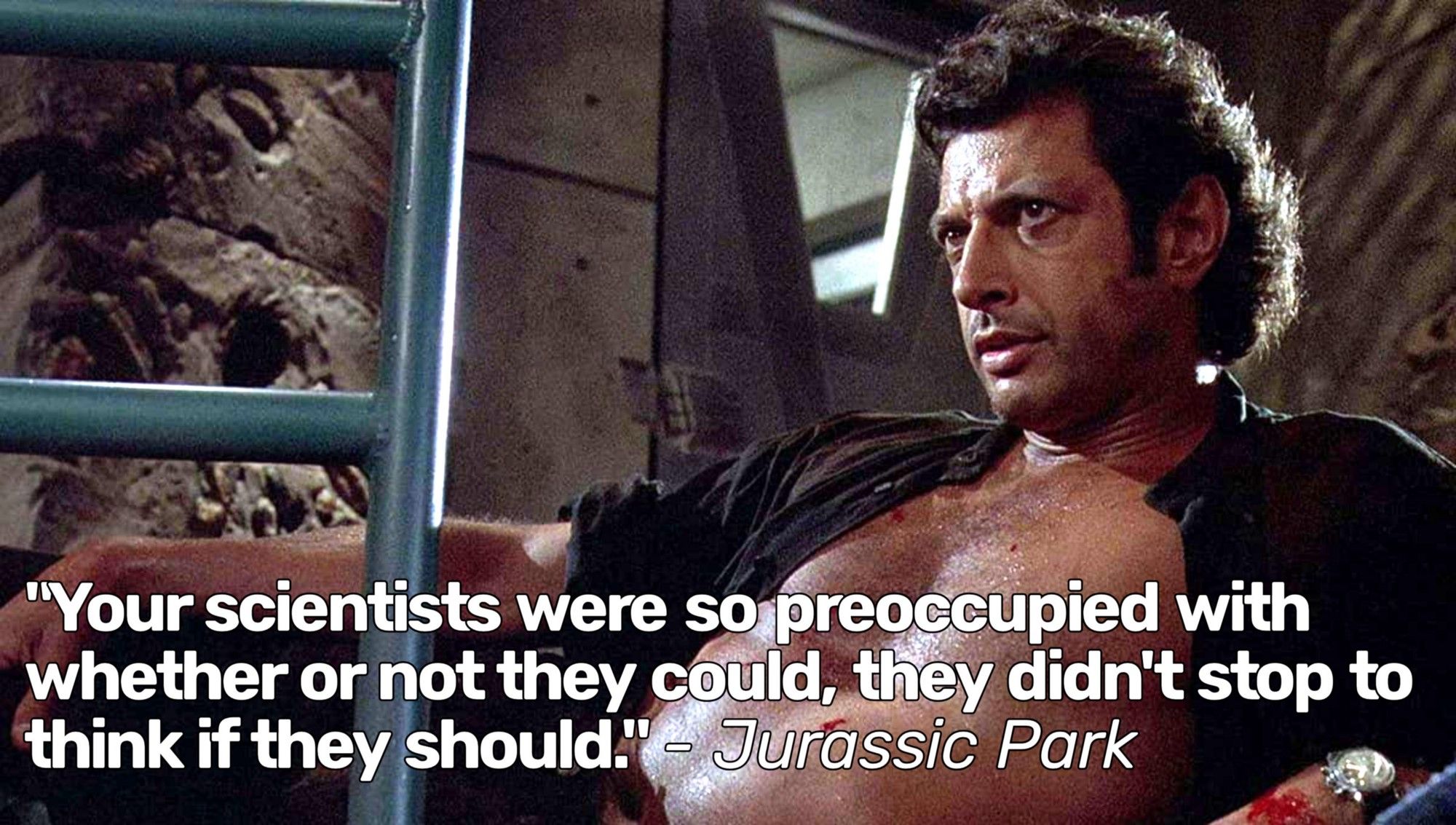
People keep saying follow the science, follow the science, but how do you think we got here? Fossil fuel extraction is science. Geologists work for Exxon and Shell. Science on its own isn’t going to solve climate change. It’s just a tool, and the master’s tools will not dismantle the master’s house.
It’s important to understand that science isn’t good (or bad). Science is just a tool for asking questions. If you ask wicked questions, you’ll get wicked results. If you ask for power it’ll make power. If you ask to kill the most people it’ll do that. You can’t just ‘follow the science’. This is like saying ‘follow the math’. OK, what’s the math problem? Most importantly, who’s asking?
To paraphrase Dr. Ian Malcolm from Jurassic Park, science is the most awesome force the planet’s ever seen, and it’s in the hands of people who wield it like a kid that’s found their dad’s gun.
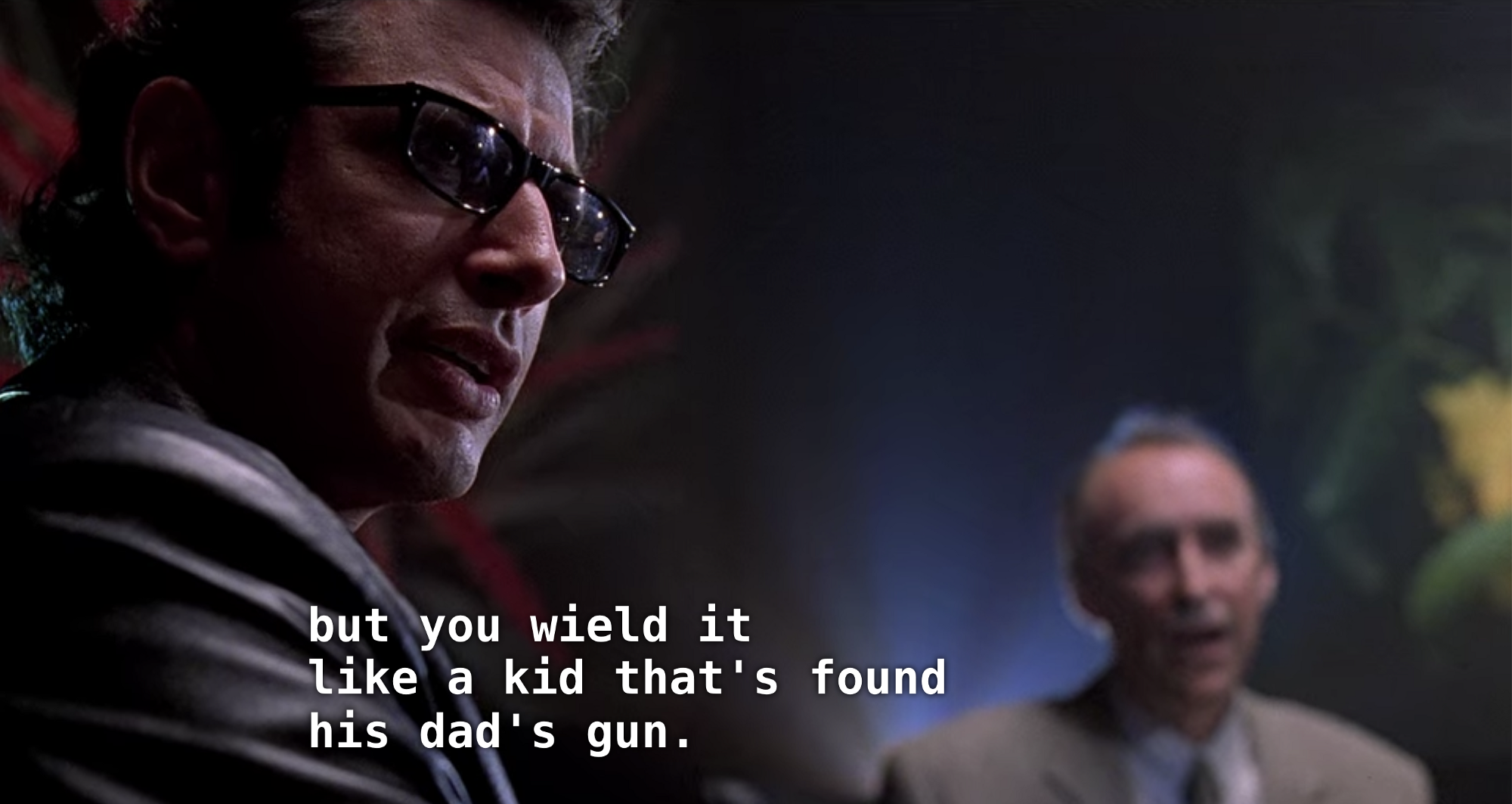
Follow the science where?
When we extract fossil fuels we are literally following the science. Geologists follow science to oil and gas deposits. Engineers follow science to drill. Hydraulic engineers follow science to get it out. These people are all following the science. We talk about following the science out of climate change, but it’s also what got us in.
My point here is that science does not inherently lead to good. Science just answers questions. If you ask how do we get this stuff out of the ground and light it on fire, it will answer that question. Through experimentation and testing, it will answer. The main question we have been asking science is ‘how do we make money and get more stuff?’ and it’s been answering that.
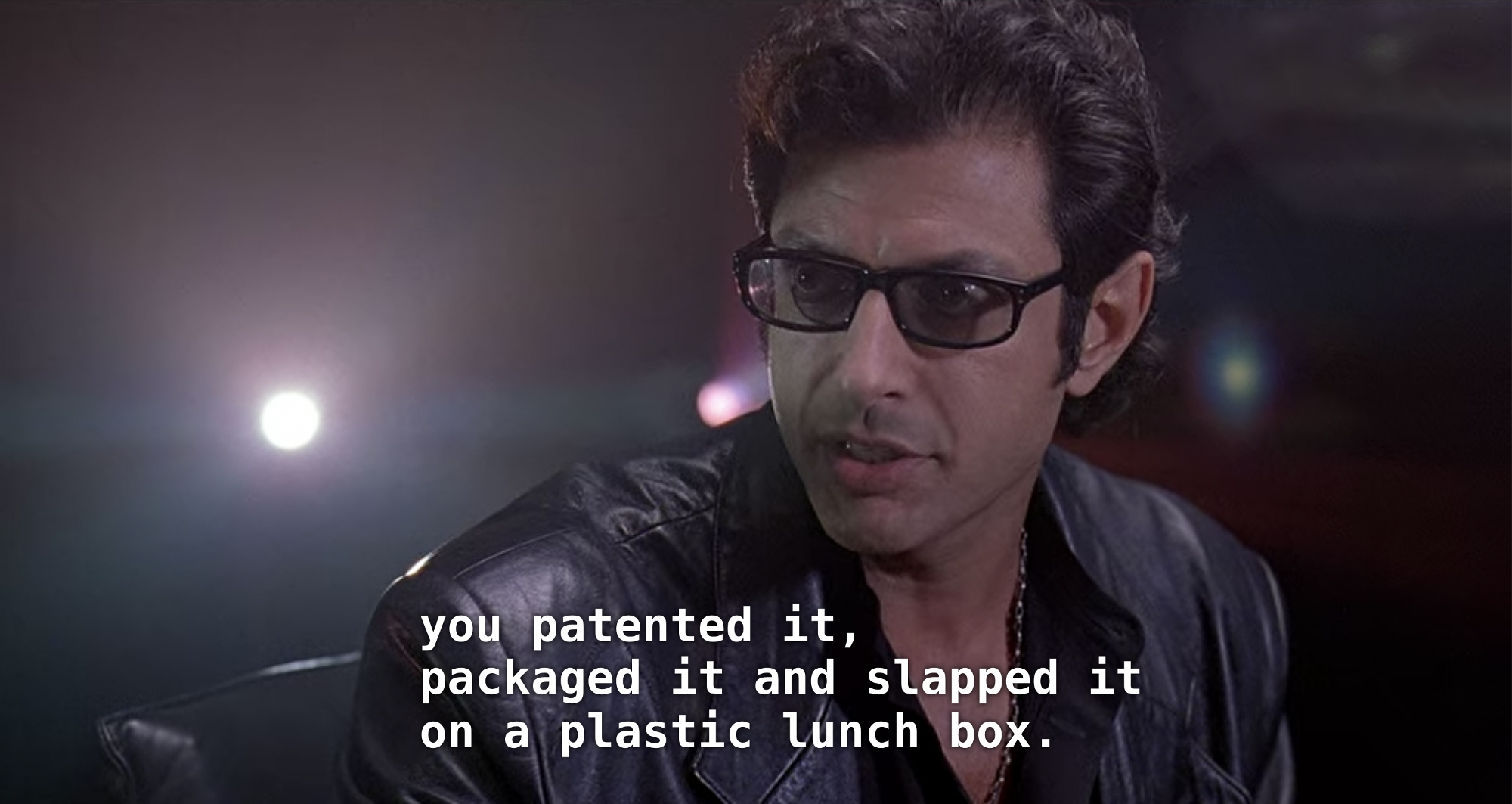
We can’t just follow the same path out and expect different results. As much as scientists are speaking out, other scientists and engineers are still drilling and burning away. And they get paid more. You can’t just follow the science. You also have to follow the money. And the power. We have to take control.
Platypuses
I often think of this platypus story. William Caldwell wanted to know if platypuses laid eggs or gave birth (they lay eggs), so he killed over 1,400 of them. Caldwell was a platypus serial killer, but this was also science.
Caldwell resolved a nearly century-long debate, but it’s hard to like him. He achieved this by paying scores of local aboriginals to hunt platypuses and echidnas, a tactic that led to a ‘fantastic slaughter’. And as the aboriginals brought him more animals, Caldwell raised the price of the food he sold them. ‘The half-crowns were, therefore,’ he wrote, ‘always just enough to buy food to keep the lazy blacks hungry.’
More than 1,400 monotremes had been killed before Caldwell himself shot a female platypus in the process of laying her eggs; the first egg lay beside her corpse, the second was still in her dilated uterus.
Caldwell triumphantly composed a telegram for an upcoming gathering of the British Association in Montreal: ‘Monotremes oviparous, ovum meroblastic.” (Liam Drew. “I, Mammal.”)
This platypus slaughter is a metaphor for science. He could have probably asked the aboriginal people and worked with them, but he just called them ‘lazy blacks’ and killed his way through.
In the same way, science has learned about the Earth by destroying it. We’re killing platypuses and every species alive. We’re so proud of our knowledge, but what’s the point if we don’t have wisdom? As Dr. Malcolm says,
What is so great about discovery? It is a violent, penetrative act that scars what it explores. What you call discovery, I call the rape of the natural world.
Jurassic Park
As Dr. Malcolm continued, “your scientists were so preoccupied with whether or not they could, they didn’t stop to think if they should.”
We think that science gives us such a better understanding of the world, but does it? You can have the smartest tool in the world, but if you use it to ask stupid questions, does that make you smart? As Nemonte Nenquimo of the Waorani people says,
For Indigenous peoples it is clear: the less you know about something, the less value it has to you, and the easier it is to destroy. And by easy, I mean: guiltlessly, remorselessly, foolishly, even righteously. And this is exactly what you are doing to us as Indigenous peoples, to our rainforest territories, and ultimately to our planet’s climate.
It took us thousands of years to get to know the Amazon rainforest. To understand her ways, her secrets, to learn how to survive and thrive with her. And for my people, the Waorani, we have only known you for 70 years (we were “contacted” in the 1950s by American evangelical missionaries), but we are fast learners, and you are not as complex as the rainforest.
When you say that the oil companies have marvellous new technologies that can sip the oil from beneath our lands like hummingbirds sip nectar from a flower, we know that you are lying because we live downriver from the spills. When you say that the Amazon is not burning, we do not need satellite images to prove you wrong; we are choking on the smoke of the fruit orchards that our ancestors planted centuries ago. When you say that you are urgently looking for climate solutions, yet continue to build a world economy based on extraction and pollution, we know you are lying because we are the closest to the land, and the first to hear her cries.
Modern society positions science as the way out of climate change, forgetting that it is how we got in. There still isn’t the humility to understand that we could learn from the older civilizations we destroyed. Yes science gives us very precise answers, but right now we’re quite precisely fucked. And indigenous people have been telling us that for years.
The imperial hubris behind science is most expressed by Noah Yuval Hariri in Sapiens. He rejects a critical judgement of the colonial-capitalism that has gotten in this mess, because look at all the stuff we got. He has an entire chapter on the Marriage of Science and Empire, as a good thing.
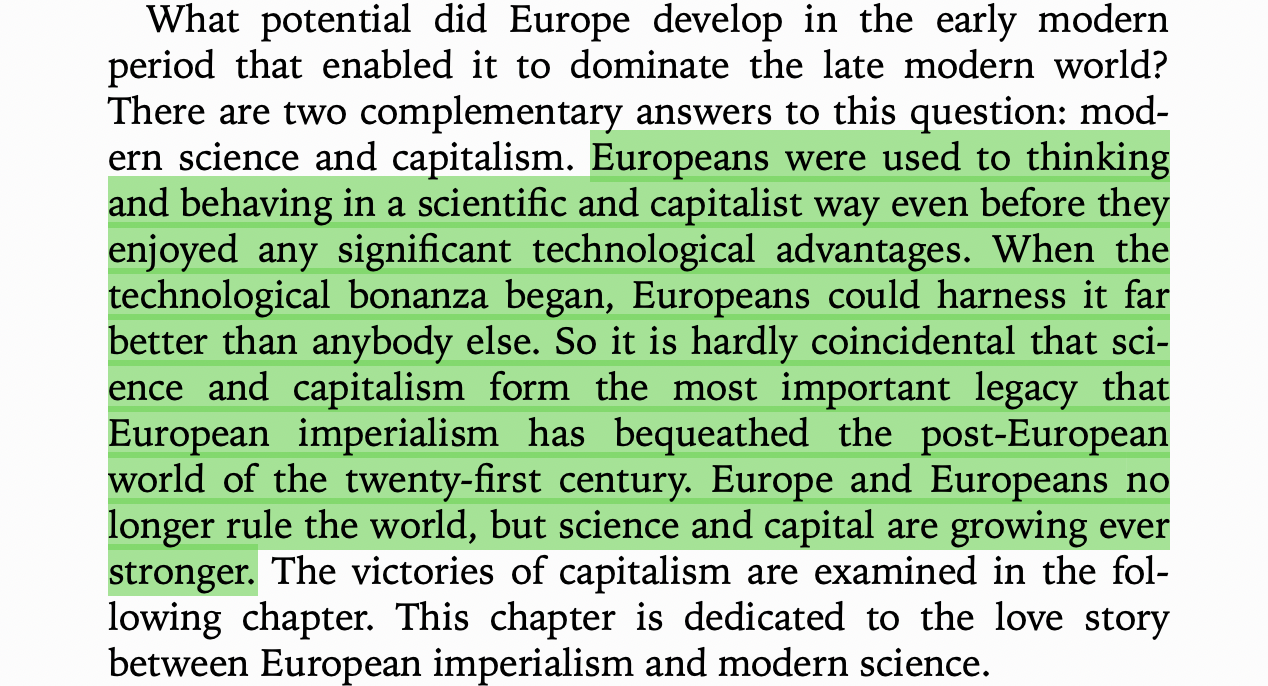
Hariri really exemplifies the hubris of imperialism, and also of science. He completely rejects any value judgements of colonialism, saying:
Simplistically dividing the past into good guys and bad guys leads nowhere. Unless, of course, we are willing to admit that we usually follow the lead of the bad guys.
But we are following the lead of the bad guys. When you ‘follow science’ it doesn’t lead you to any particular morality, it just follows the power structures of the day. And those power structures are leading us to complete resource extraction, leading to the collapse of the livable Earth. As Dr. Malcolm said before the dinosaurs went apeshit,
The lack of humility before nature that’s being displayed here, uh… staggers me.
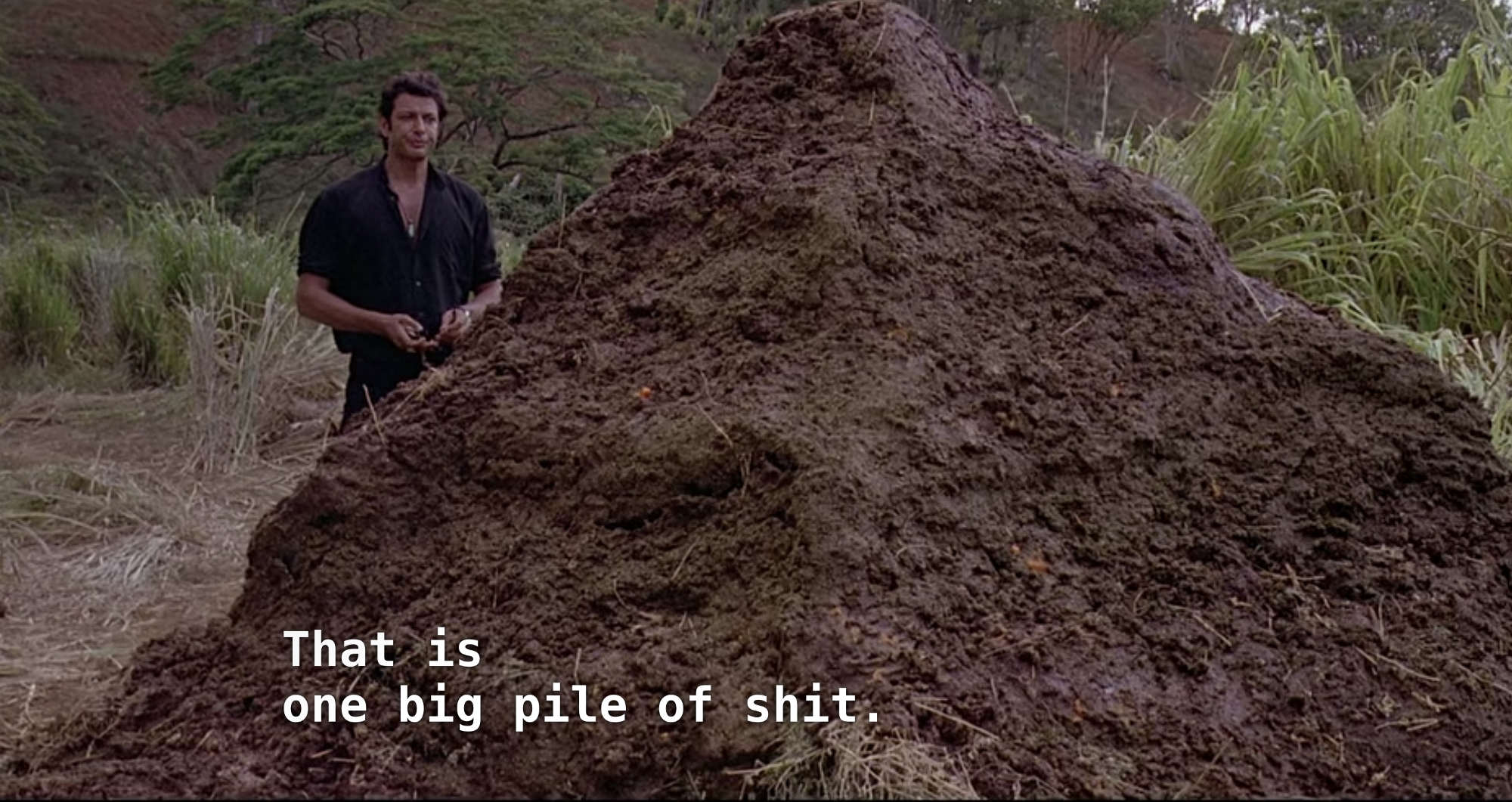
The Master’s Tools
As I’ve said, science is just a tool. You must question who’s holding that tool, and judge them lest they get you killed. Science has been wedded to empire for centuries, and just because some scientists are shouting is not going to save us. You can’t just follow the science, you have to follow the money, and the power.
As Audre Lorde said, “the master’s tools will never dismantle the master’s house.” You have to dismantle the master first. That’s why we cannot just follow the science. We have to fundamentally change power relations in the world, and make the science follow us.